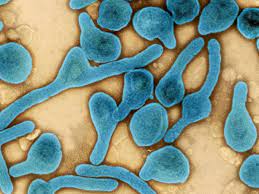The East African Community (EAC) on Friday issued an urgent call for a coordinated regional response to contain the Marburg Virus Disease (MVD) outbreak declared in Rwanda. This highly lethal virus, similar to Ebola, threatens to spread across borders, posing a major health risk to neighbouring countries.
On 27 September 2024, the Rwandan Ministry of Health confirmed an outbreak of MVD, and to date 29 cases have been reported, including 10 deaths. The rapid spread of the disease, particularly in districts close to the borders with the Democratic Republic of Congo (DRC), Uganda and Tanzania, has concerned the World Health Organization (WHO), which fears a regional spread, according to a statement received by APA on Friday.
Andrea Aguer Ariik Malueth, deputy secretary-general of the EAC, called on partner states to intensify surveillance and prevention efforts, including rigorous border and health facility controls. “There is an urgent need for a coordinated regional response to contain this virus through rapid case identification, isolation and treatment,” he stressed.
The Marburg virus, which is transmitted through direct contact with bodily fluids or contaminated surfaces, has a mortality rate of between 24 and 88 percent, depending on the strain. In the absence of a vaccine or specific treatment, supportive care is essential to improve the chances of survival for those infected.
In response to this crisis, Rwanda, with its robust health infrastructure, is already mobilising its resources with international support. However, EAC experts believe that greater regional cooperation is needed, as demonstrated by the Marburg outbreak in the Kagera region of Tanzania in 2023.
Recommended preventive measures include good hand hygiene, avoiding contact with fruit bats and safe burial practices to minimise exposure to the virus.
In parallel, the EAC, with support from the German government, says it is strengthening regional capacity for pandemic preparedness, including the establishment of water, sanitation and hygiene facilities in border areas and the training of health workers.
ARD/te/lb/as/APA


